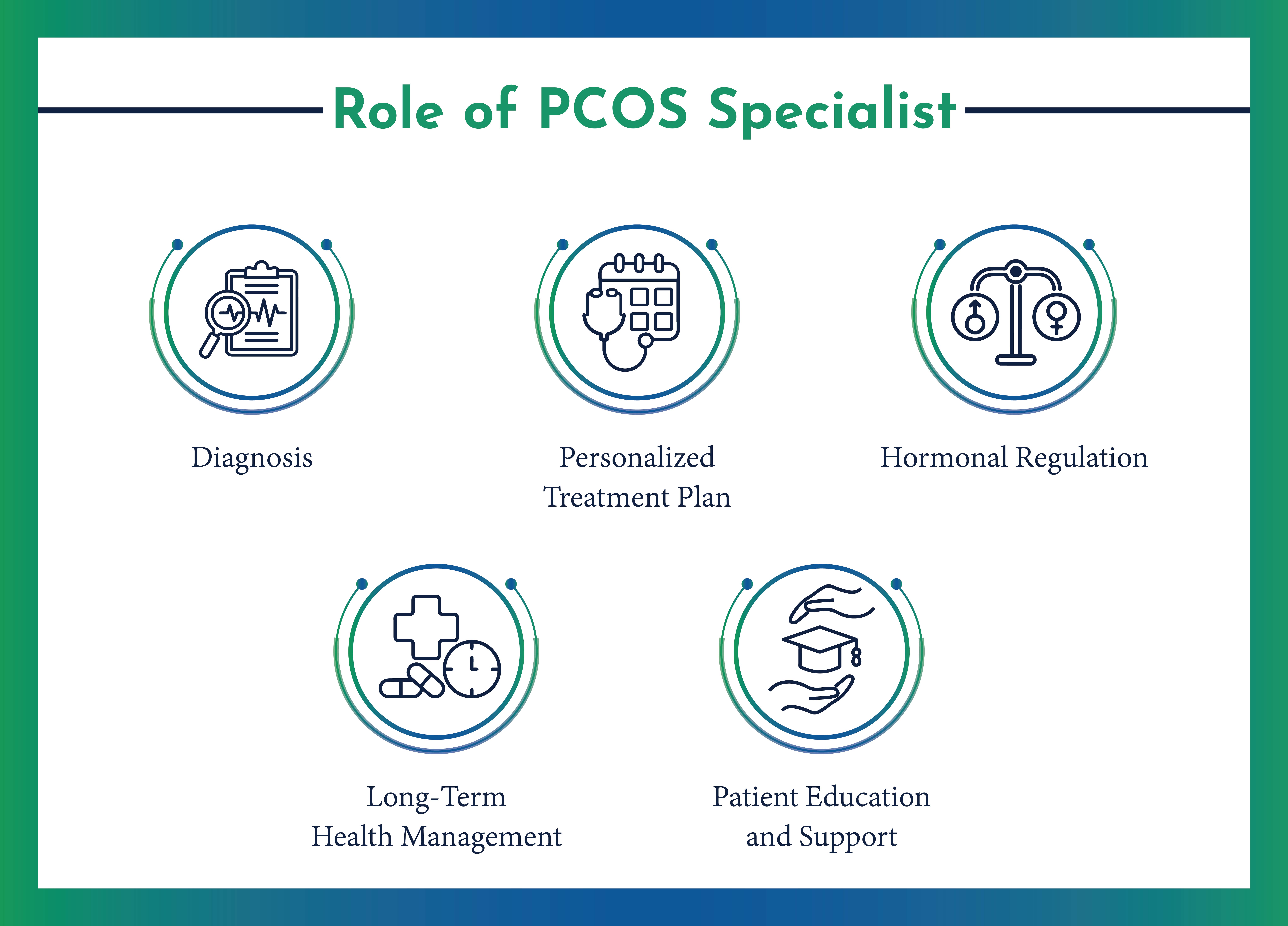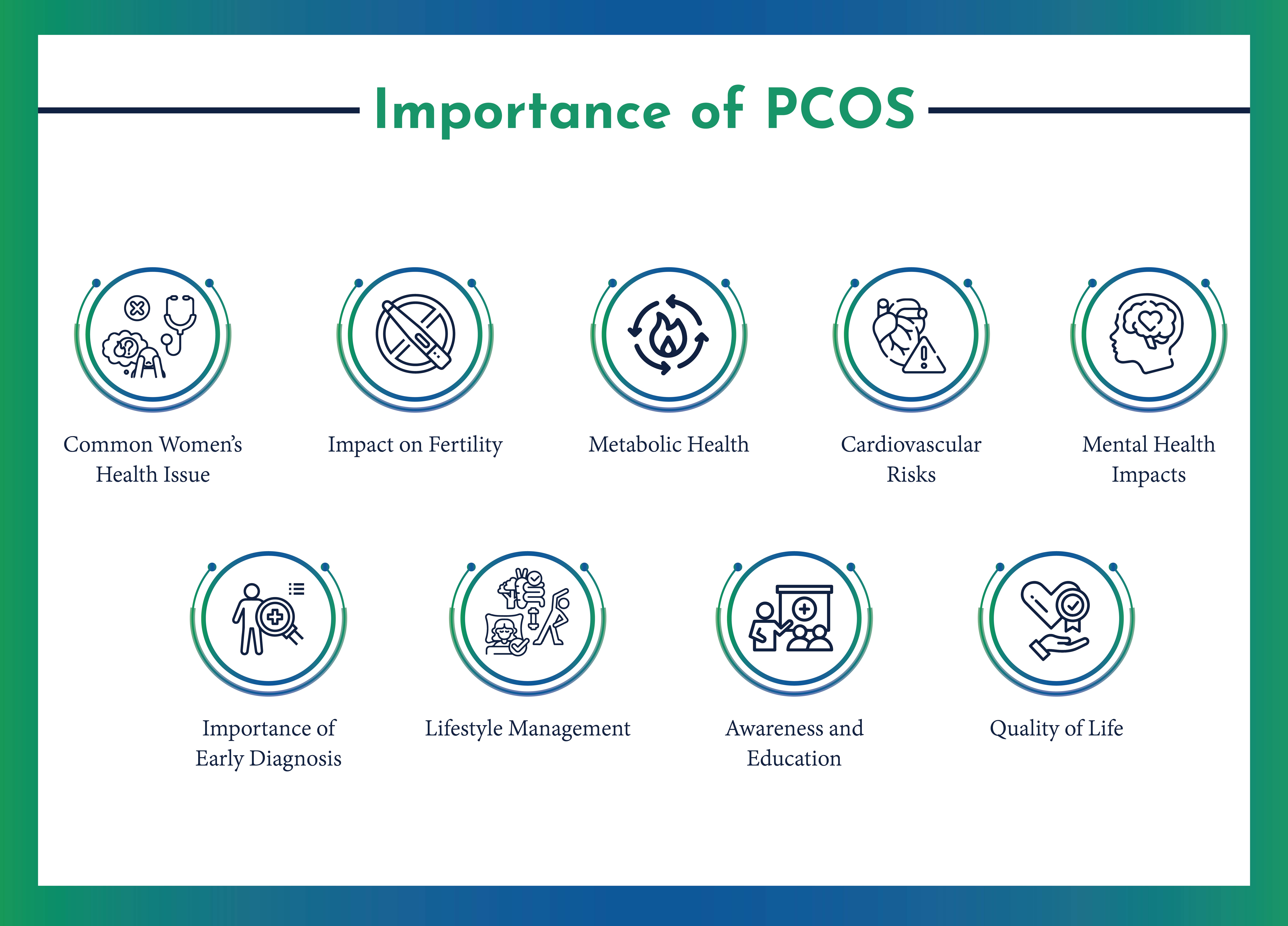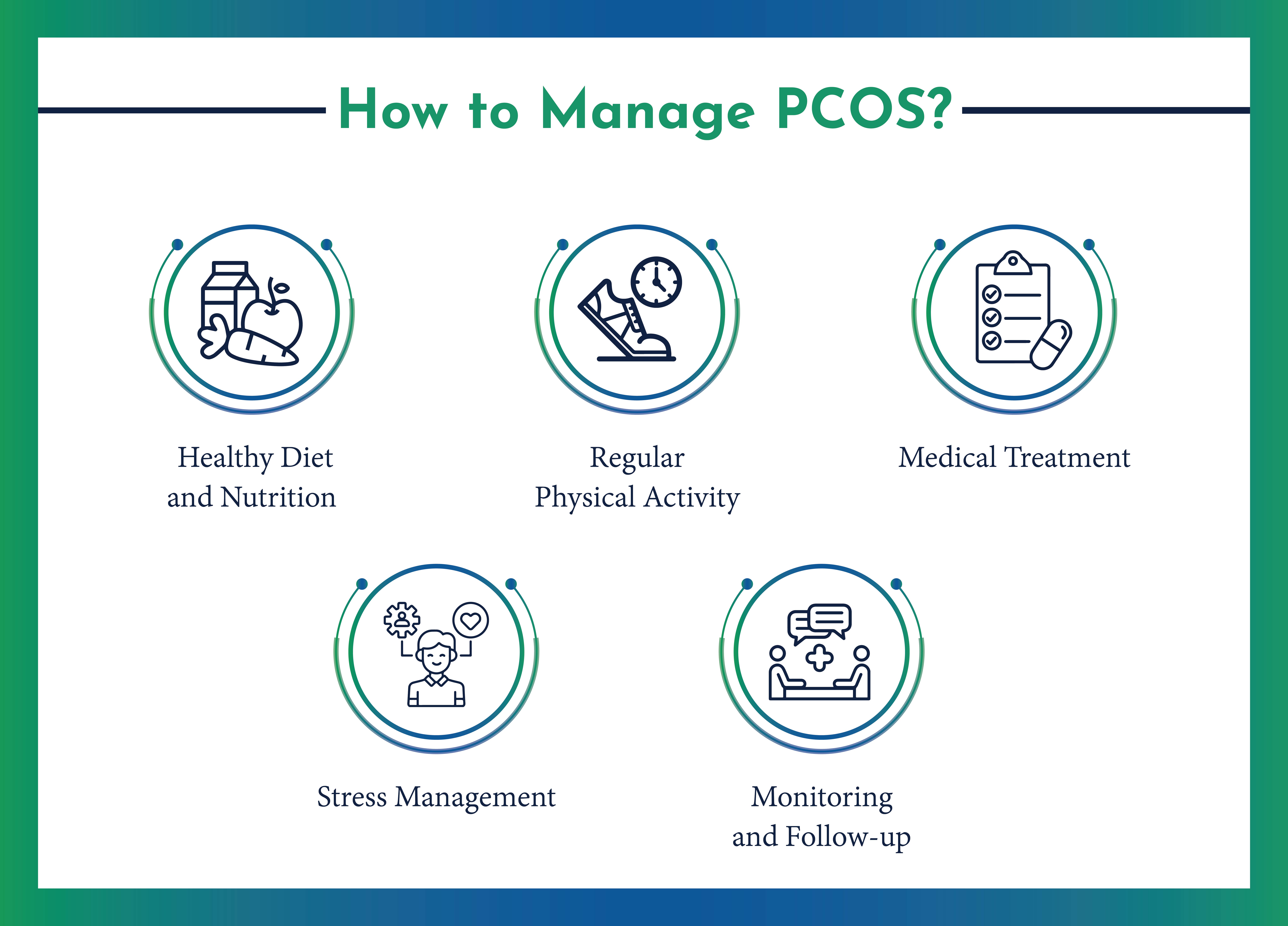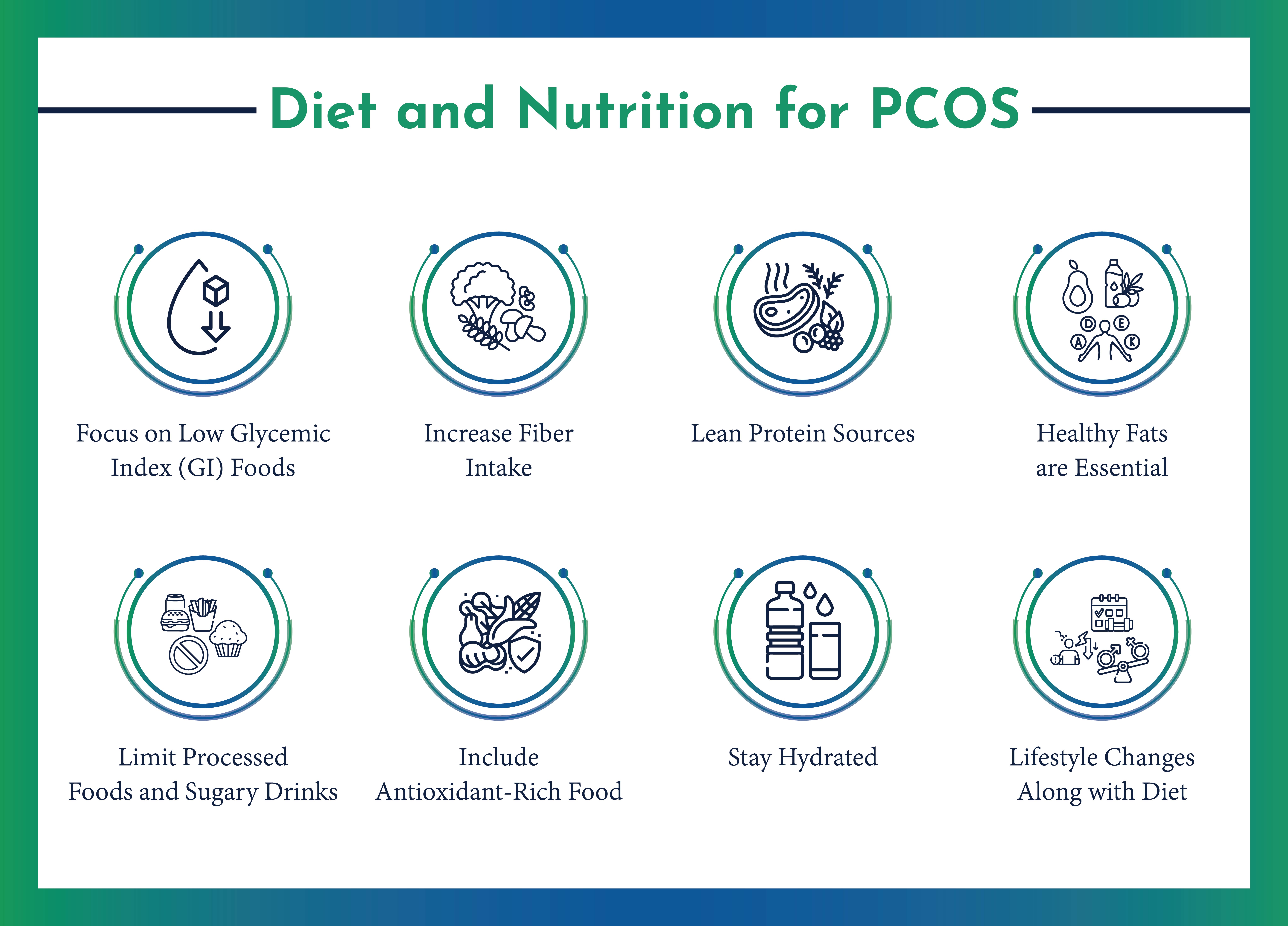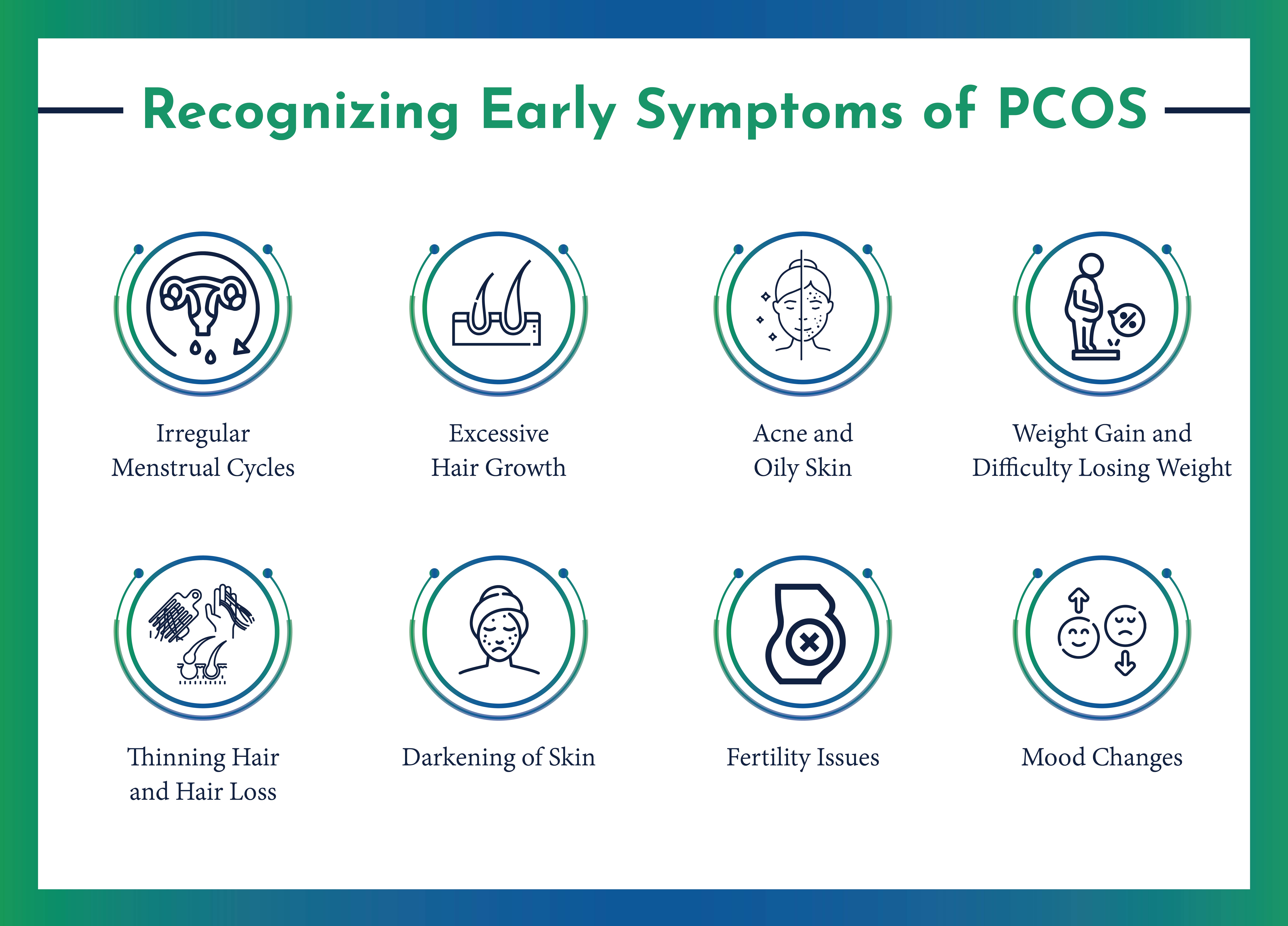Explanation of the role of PCOS Specialist
A PCOS (Polycystic Ovary Syndrome) specialist plays a critical role in diagnosing, treating, and managing the various aspect of PCOS, a hormonal disorder that affects many women of reproductive age. In Dehradun, Dr. Shreya Sharma stands out as a leading expert in this field, offering comprehensive care for women struggling with PCOS.
-
-
Diagnosis:
PCOS can present with a wide variety of symptoms such as irregular periods, excessive hair growth, cne, and weight gain, which may sometimes overlap with other conditions. A specialist like Dr. Shreya Sharma conducts thorough diagnostic evaluations, including hormonal blood tests and ultrasounds, to confirm the presence of PCOS.
-
Personalized Treatment Plan:
PCOS treatment to not one-size-fits-all. Dr. Shreya Sharma focuses on individual patient profiles to tailor treatment plans that address the root causes and symptoms specific to each patients. This may include lifestyle changes, medication, or hormonal therapies.
-
-
Hormonal Regulation:
One of the primary challenges with PCOS is the imbalance of hormones. PCOS specialist help in managing these imbalances through targeted treatments that help in regulating menstruation, improving fertility, and reducing other symptoms like hair loss and acne.
-
ong-Term Health Management:
LPCOS is a lifelong condition that requires long-term management. Dr. Shreya Sharma not only focuses on immediate symptom relief but also help managing the long term risk associated with PCOS, such as diabetes, cardiovascular issues, and mental health challenges.
-
Patient Education and Support:
A key part of Dr. Shreya Sharma’s approach involves educating her patients about PCOS, its impact on the body, and how lifestyle changes, including diet and exercise, can improve outcomes. She provides continuous support to ensure patients stay informed and empowered to manage their condition effectively.
Importance of PCOS:
-
Common Women’s Health Issue:
PCOS is one of the most common hormonal disorders affecting women of reproductive age, making it a critical area of focus in women’s health.
-
Impact on Fertility:
PCOS is a leading cause of infertility, as it interfere with ovulation and menstrual cycles, affecting a woman’s ability to conceive.
-
Metabolic Health:
Women with PCOS are at higher risk of developing insulin resistance, type 2 diabetes, and metabolic syndrome, all of which have long term health consequences.
-
-
Cardiovascular Risks:
PCOS increases the risk of cardiovascular disease such as high blood
pressure, high cholesterol, and heart disease, due to its link with obesity and metabolic issues.
-
Mental Health Impacts:
PCOS can lead to mental health challenges such as anxiety, depression,
and body image issues due to symptoms like weight gain, acne, and hair loss
-
Importance of Early Diagnosis:
Early diagnosis and management of PCOS can prevent long-term
complications, including infertility, diabetes, and heart disease.
-
Lifestyle Management:
Proper management of PCOS often involves lifestyle changes, such as a healthy diet, regular exercise, and weight management, which can improve symptoms and reduce health risks.
-
Awareness and Education:
Increasing awareness about PCOS is essential for early intervention and providing women with the tools and support they need to manage their condition effectively.
-
Quality of Life:
Addressing PCOS is crucial for improving the overall quality of life for women,
helping them manage symptoms, enhance their well-being, and lead healthier lives.
How to Manage PCOS?
According to Dr. Shreya Sharma, one of the best endocrinologists in Dehradun, effective management of
PCOS involves a combination of strategies aimed at addressing the root cause of the condition.
-
Healthy Diet and Nutrition:
A diet rich in whole grains, lean proteins, healthy fats, and plenty of fruits and vegetables can help regulate insulin levels and manage weight. Women with PCOS often have insulin resistance, making it essential to focus on foods that have a low glycemic index, which prevent rapid spikes in blood sugar. Avoiding processed foods, sugary snacks, and refined carbohydrates can also help in weight management and reducing symptoms.
-
-
Regular Physical Activity:
Exercise plays a significant role in managing PCOS. Dr. Shreya Sharma recommends at least 30 minutes of moderate-intensity exercise most days of the week. Activities such as walking, swimming, yoga, or strength training can help improve insulin sensitivity, reduce androgen levels, and promote weight loss, all of which can alleviate PCOS symptoms. Even a modest reduction in weight can help regulate menstrual cycles and improve fertility outcomes.
-
Medical Treatment:
In some cases, lifestyle changes alone may not be enough to manage PCOS effectively. Dr. Shreya Sharma often prescribes medications that help regulate hormones and manage specific symptoms of PCOS. For instance, oral contraceptive pills may be used to regulate menstrual cycles, while medications like Metformin are prescribed to improve insulin sensitivity. Anti-androgen medications may also be recommended to reduce excessive hair growth and acne. It's important to consult with a healthcare provider like Dr. Sharma to create a tailored treatment plan.
-
Stress Management:
Stress can worsen the symptoms of PCOS by increasing cortisol levels and contributing to hormonal imbalances. Dr. Shreya Sharma advocates for the incorporation of stress-reducing techniques such as mindfulness, meditation, and yoga. These practices not only improve mental well-being but also help in regulating the body's hormonal environment.
-
Monitoring and Follow-up:
Regular monitoring of symptoms, hormone levels, and overall health is crucial in managing PCOS. Dr. Shreya Sharma stresses the importance of follow-up visits to assess the effectiveness of treatment and make necessary adjustments. PCOS is a long-term condition, but with proper management, its symptoms can be effectively controlled, improving quality of life and reducing the risk of long-term complications such as type 2 diabetes and cardiovascular disease.
Diet and Nutrition for PCOS:
Dr. Shreya Sharma, the best endocrinologist in Dehradun. Emphasizes that a well-balanced, personalized diet can significantly improve insulin sensitivity, hormonal balance, and overall health in women with PCOS.
-
Focus on Low Glycemic Index (GI) Foods:
Insulin resistance is a hallmark of PCOS, so it’s essential to regulate blood sugar levels. Low GI foods like whole grains, legumes, and non-starchy vegetables help in maintaining steady blood sugar and insulin levels. Foods such as quinoa, oats, and sweet potatoes, which have a lower glycemic load
-
-
Increase Fiber Intake:
Fiber plays a pivotal role in improving digestion and maintaining healthy insulin levels. High-fiber foods can slow digestion and reduce the impact of sugar on the blood stream. Include leafy greens, broccoli, cauliflower, and fruits like apples and pears in the diet. It is advisable to have at least 25-30 grams of fiber daily.
-
Lean Protein Sources:
Protein helps in stabilizing blood sugar and curbing hunger. Dr. Shreya Sharma recommends patients to include lean protein like chicken, tofu, lentils, greek yogurt. These are essential for building muscle and maintaining a healthy weight which is critical for PCOS management.
-
Healthy Fats are Essential:
Healthy fats, such as omega-3 fatty acids, are known for their anti-inflammatory properties. These fats can help reduce inflammation, which is often elevated in women with PCOS. Incorporating sources like flaxseeds, walnuts, avocados, and olive oil is highly recommended by Dr. Shreya Sharma.
-
Limit Processed Foods and Sugary Drinks:
Processed foods, sugary beverages, and refined carbohydrates can worsen insulin resistance and lead to weight gain. Dr. Sharma advises her patients to minimize the intake of sugary snacks, sodas, and fried foods. Instead, focus on whole, unprocessed foods that provide essential nutrients without spiking blood sugar levels.
-
Include Antioxidant-Rich Food:
Antioxidants help fight inflammation and oxidative stress, which are common in PCOS. Foods rich in antioxidants, such as berries, spinach, and nuts, can help improve overall metabolic health. Dr. Shreya Sharma emphasizes the importance of a diet rich in vitamins and minerals, particularly vitamin D and magnesium, which are often deficient in women with PCOS.
-
Stay Hydrated:
Proper hydration is crucial for overall health and weight management. Dr.Sharma suggests drinking plenty of water throughput the day, as dehydration can lead to fatigue and sugar cravings.
-
Lifestyle Changes Along with Diet:
Dr. Shreya Sharma also stresses the importance of incorporating regular physical activity alongside a healthy diet for optimal PCOS management. Exercise can enhance insulin sensitivity, reduce stress, and promote hormonal balance.
How to Choose the Best PCOS Specialist in Dehradun:
-
Ask for Recommendations:
Talk to family, friends, or healthcare providers for suggestions. They may know good gynecologists or endocrinologists in Dehradun who specialize in PCOS.
-
Check Online Reviews: Platforms like Practo, Lybrate, and Google reviews provide patient feedback about doctors. Look for consistent positive reviews, particularly from people with PCOS.
-
Years of Experience:
Doctors with more experience handling PCOS cases are likely to provide better treatment.
-
Check Certifications: Ensure the doctor is qualified and has certifications in gynecology or endocrinology.
-
Holistic Approach: A good specialist will not only focus on medication but also on diet, lifestyle changes, and mental health, which are crucial for managing PCOS.
-
Location: Ensure the clinic or hospital is conveniently located for follow-up visits.
-
Availability: Check if the doctor has flexible appointment timings and is available for emergency consultations.
Recognizing Early Symptoms of PCOS:
-
Irregular Menstrual Cycles:
one of the hallmark symptoms of PCOS is an irregular menstrual cycle. Women may experience fewer periods, very light or extremely heavy periods, or even complete absence of menstruation. Dr. Shreya Sharma advises that if menstruation is consistently irregular, it should not be ignored.
-
Excessive Hair Growth:
Many women with PCOS experience excessive hair growth on the face, chest, back, or other areas where men typically grow hair. This is due to an increase in androgen levels (male hormones), and it’s often one of the more distressing symptoms for women.
-
Acne and Oily Skin:
Dr. Sharma points out that persistent acne, especially on the lower face, chest, and back, is another early signs of PCOS. This occurs due to elevated androgen levels which cause the skin to produce more oil.
-
Weight Gain and Difficulty Losing Weight:
Women with PCOS often struggle with weight gain and may find it harder to lose weight despite maintaining a healthy lifestyle. Dr. Shreya Sharma notes that insulin resistance, a common feature of PCOS, can contribute to weight gain, particularly around the abdomen.
-
Thinning Hair and Hair Loss:
While some women experience excessive hair growth, others may notice thinning hair or hair loss on the scalp, resembling male-pattern baldness. This is another result of hormonal imbalance.
-
Darkening of Skin:
Patches of dark skin, particularly in the neck creases, armpits, or under the
breast, can also be an early sign of PCOS. This condition, is linked to insulin resistance.
-
Fertility Issues:
PCOS is one of the leading causes of infertility in women. Dr. Shreya Sharma stresses that women who are trying to conceive and experiencing difficulty should consider getting evaluated for PCOS, especially if they also show other symptoms.
-
Mood Changes:
Many women with PCOS experience mood swings, depression, or anxiety,
which can be linked to hormonal fluctuations.
-
Dr. Shreya Sharma, regarded as the best endocrinologist in Dehradun is highly experienced in managing PCOS and other hormonal disorders. She offers comprehensive treatment plans tailored to the unique needs of women with PCOS, focusing on balancing hormones, improving metabolic health, and managing symptoms such as irregular periods, weight gain, and insulin resistance. Dr. Sharma’s patient-centered approach includes dietary guidance, lifestyle modifications, and medical treatments, helping women lead healthier lives and effectively manage their condition. Her compassionate care and expertise make her top choice for those seeking PCOS treatment in Dehradun.
